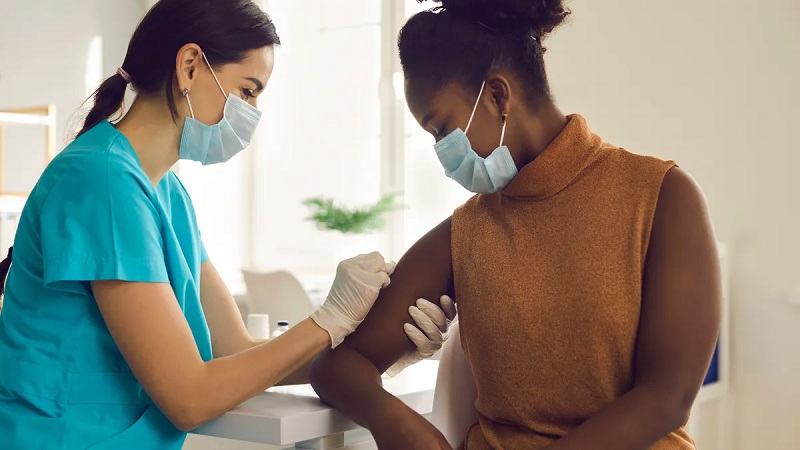Local News
Racial Discrimination Increases vaccine hesitancy UAMS study finds

Little Rock, Arkansas – A study conducted by the Office of Community Health & Research at the University of Arkansas for Medical Sciences revealed that those who experience racial prejudice are less likely to get immunized.
Researchers reportedly examined responses from American individuals regarding their general vaccine hesitancy in order to compare them to established indicators of COVID-19 vaccine hesitancy.
They discovered similarities between COVID vaccine hesitation predictors and vaccination reluctance in general.
In all situations, there was a larger likelihood of expressing vaccine hesitation for people who had experienced racial discrimination, such as being denied the opportunity to do something or being made to feel inferior in any situation.
The National Institutes for Health state that there are various underlying causes of vaccine hesitancy that differ throughout time and populations. It is defined as a reluctance or refusal to receive a vaccination.
Age, gender, ethnicity, and education were identified to be some of the determinants of general vaccine hesitation by UAMS researchers, with younger people and women being twice as likely to be vaccine reluctant than older people and men.
According to the news release, participants who only completed high school were more likely to report vaccine hesitancy than those with higher levels of education. Participants who had health insurance and regularly visited a doctor were also less likely to report vaccine hesitancy than those who did not.
“To address vaccine hesitancy, we must understand what influences a person’s decision to be vaccinated or not,” said Sheena CarlLee, M.D., an assistant professor in the UAMS Department of Internal Medicine’s Division of Community Health and Research and program director of the UAMS/Washington Regional Internal Medicine Residency Program. “Vaccine hesitancy is not a singular problem, but if we can understand these influences, then we improve health policies and systems.”
The COVID-19 vaccine was administered to around 57% of the state’s people, according to the Centers for Disease Control and Prevention (CDC). The latest bivalent booster shot was made available to the public last year, but only 11% of people have received it.
According to CDC data, in 2021, 42% of Arkansans had a flu shot, and by the age of 24 months, 66% of Arkansas children had received every recommended childhood vaccination. According to the U.S. Census Bureau’s ranking of the most racially and ethnically diverse states for 2020, Arkansas came in at number 26.
-

 Local News2 weeks ago
Local News2 weeks agoFormer publisher of National Enquirer reveals 2018 hush money discussions with Governor Sanders
-

 Local News2 weeks ago
Local News2 weeks agoAn Arkansas native uses children’s literature to embrace uniqueness and encourage dreams
-

 Local News2 weeks ago
Local News2 weeks agoJonesboro City Water and Light is cleaning up the water system
-

 Arkansas2 weeks ago
Arkansas2 weeks agoList of Arkansas schools enrolled in a 4-day week
-

 Local News2 weeks ago
Local News2 weeks agoASP looks for a suspect in the teen’s death following the Helena-West Helena prom
-

 Local News2 weeks ago
Local News2 weeks agoLegislators honor Craig O’Neill for his decades-long career in radio and television
-

 Local News2 weeks ago
Local News2 weeks agoCommemorative clock tower construction on UACCM campus begins
-

 Local News2 weeks ago
Local News2 weeks agoThe effects of food allergies on minority groups






Leave a Reply